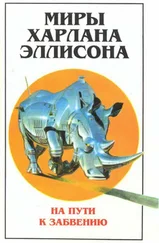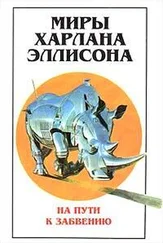People talked about Glen’s temper and his hands. He didn’t drink, didn’t mess around, didn’t even talk dirty, but the air around him seemed to hum with vibration and his hands were enormous. They hung like basebal mitts at the end of his short, tight-muscled arms. On his slender, smal -boned frame, they were startling, incongruous, constantly in motion, and the only evidence of just how strong he was. When he reached for Reese and me, he would cup his palms around the back of our heads and drop down to look into our faces, his warm, damp fingers tangling gently in our hair. He was infinitely careful with us, gentle and slow with those hands, but he was always reaching for Mama with sudden, wide sweeps of his arms. When he hugged her, he would lay his hands on her back so that he covered it from neck to waist, pul ing her as tight to him as he could.
Mama was always taking Glen’s hands between hers, her fingers making his seem even bigger, harder, and longer. “He’s a gentle man,” she told her sisters. “You should see how tender he gets, the way he picks Reese up when she fal s asleep in the back of the car, like she was so delicate, so fine—like that glass that chimes when you click it against your teeth.” My aunts would nod, but not with much conviction.
But I could tel that Mama had begun to love Glen. I saw how she blushed when he looked at her or touched her, even in passing. A flush would appear on her neck, and her cheeks would brighten until her whole face glowed pink and hot. Glen Waddel turned Mama from a harried, worried mother into a giggling, hopeful girl.
One afternoon Glen dropped the last case onto the truck and turned to look at Mama, Reese, and me waiting in Mama’s old Pontiac. The sun caught his sweat, shiny beads and rivulets, so that he seemed to glitter in the light. He wiped his face, but the sweat kept coming down in tracks, and he looked as if he were weeping. He walked toward us slowly, dropped by the door in a crouch, and reached through the window to take Mama into a tight embrace.
“Oh Anney,” he whispered. “Anney, Anney.” His voice was a husky tremolo. “You know. You know, I love you so. I can’t wait no more, Anney. I can’t. I love you with al my heart, girl.”
His arms stretched over the seat and pul ed Reese and me forward, pressing us into Mama’s neck and back. “And your girls, Anney. Oh, God! I love them. Our girls, Anney. Our girls.” He sobbed then, pul ing us in tighter so that Reese’s bird bones crunched into my shoulder and the haze of his sweat drifted al around us. His face slid past Mama’s hair, pressed into mine, his mouth and teeth touched my cheek. “Cal me Daddy,” he whispered. “Cal me Daddy ‘cause I love your mama, ‘cause I love you. I’m gonna treat you right. You’l see. You’re mine, al of you, mine.”
His shoulders shook, his body reaching through the window seemed to rock the whole car. “Oh, Anney.” He shuddered. “Don’t say no. Please, Anney, don’t do that to me!”
“Glen,” Mama breathed. “Oh, Glen. I don’t know.” She trembled and slowly stretched her own arms up and around his shoulders. “Oh, God. Al right, I’l think about it. Al right, honey. Al right.”
Glen jumped back. He slammed his hands down on the car top, once, twice, three times. The echoes were like shots. Mama was crying quietly, her shoulders heaving back against Reese and me.
“Goddam,” he screamed. “Goddam, Anney!” He spun in a circle, whooping. “I knew you’d say yes. Oh, what I’m gonna do, Anney! I promise you.
You an’t never even imagined!” He spread his arms wide and whooped again. His face looked like someone was shining a hot pink light on it. He pul ed the door open and reached for Mama, his hands stil shaking as they wrapped around her back. He drew her in so close that she came off her feet, and then he swung her around in the air, laughing and shouting. Reese put her hands on my shoulders and held on. I could feel the vibration as she shook gently to the echo of Glen’s shouts. We both smiled and held on to each other while Glen danced Mama around the parking lot in the shelter of his arms.
“You just don’t like the Waddel s,” Mama told Granny. She was standing on Aunt Alma’s porch, wearing a blue-and-white polka-dot blouse Glen had bought her. It showed off the color of her eyes, he’d said. From the look on her face anyone could see that she was making an effort to be patient with Granny.
“Glen loves me, loves my girls. Don’t matter if his family is stuck-up and ful of themselves. Glen’s not like that.”
“You don’t know what that boy is like, Anney. You just don’t know.”
“I know he loves me.” Mama spoke with conviction, certain that Glen Waddel loved her more than his soul and everything else would come from that. “I know enough,” she told Granny.
“That boy’s got something wrong with him.” Granny turned to Aunt Alma for support. “He’s always looking at me out the sides of his eyes like some old junkyard dog waiting to steal a bone. And you know Anney’s the bone he wants.”
“You just don’t think anybody’s good enough for Anney,” Alma teased. “You want her to go on paying you to keep her girls every day til she’s dried up and can’t imagine marrying again.”
It was a continuation of a fight that had been dragging on al week. Now it was Sunday, and Glen was coming over to take everyone out to the lake for a picnic. Granny was refusing to come along even though Mama had packed chicken hash and Jel -O with her in mind.
“Let it go, Anney, and help me with this camera.” Aunt Alma had a new Brownie and was determined to document every family occasion she could.
“You can’t win a fight with
Mama no way. Just leave her alone and let her come to her senses in her own good time.”
When Glen arrived, it was the camera that coaxed Granny out of the house and onto the porch with the rest of us. But then it was Glen who didn’t want his picture taken. “I an’t no movie star,” he told Alma, and kept putting his hand up in front of his face when she pointed her camera at him.
“It’s that new haircut,” Earle joked. “Glen don’t want people to know his ears stick out that far. I’m with you, Glen. We’re too ugly for photographs. Let the women and kids line up for ‘em and leave us alone.”
Uncle Earle liked Glen Waddel wel enough, but like Granny he didn’t think much of the Waddel family. He’d even said so to Glen’s face, but the boy had just grinned at him, and that didn’t seem right. Even if he didn’t get on with his people, Earle believed that Glen shouldn’t let anybody bad-mouth them. If they had traded a few punches over it, bled on each other a little and made up after, the whole thing would have felt better to Earle al around. But Glen was a quiet sort who never fought in friendly style. He either gave you that slow grin or went al out and tried to kil you. The latter earned him a little respect, Earle admitted. The cops had had to be cal ed on Glen once at the foundry before he left to take the job at the RC Cola plant. Glen was a grown man, a working man, and he loved Anney Boatwright. Everybody knew that, even Granny.
“Now, Earle, don’t you be making no trouble.” Granny pushed her hair back behind her ears and smoothed down the wrinkles on her green print blouse. “I want Alma to get pictures of everybody. I want a book of family pictures for my cedar chest.”
Earle laughed and sneaked around to poke Alma while she was focusing on Granny and Mama, then chased Reese and me out into the yard, catching Reese and throwing her up in the air so high she flapped her arms like she was going to fly. I dodged them and cut through the bushes, ignoring the brambles that caught in the skirt of the new dress Mama had made me wear. From the other side of Earle’s truck, I stood and looked back at them, Granny up on the porch with her hesitant uncertain smile, and Mama down on the steps in her new blouse with Glen in that short brush haircut, while Alma posed on the walkway focusing up at them. Everybody looked nervous but determined, Mama stiff in Glen’s awkward embrace and Glen almost stumbling off the steps as he tried to turn his face away from the camera. It made my neck go tight just to look at them.
Читать дальше












